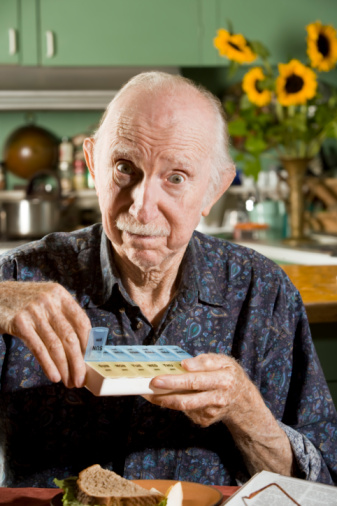
What is Dementia?
Dementia involves a loss of brain function and can result from many diseases. Individuals who have dementia often have problems with memory and forgetfulness, thinking, language, perception and judgement as well as behavior. Forgetfulness is often the first sign of the disease. There is a stage in between forgetfulness that is associated with aging and dementia. This stage is termed mild cognitive impairment (MCI) and does not interfere with activities of normal daily living. People with MCI are usually aware of their forgetfulness and not everyone that has MCI will develop dementia. However, those that do may end up having severe cognitive deficits. Early signs of dementia include difficulty performing tasks that take some thought, getting lost on familiar routes, losing interest in activities that were once enjoyed, difficulty finding the “right” word, misplacing items as well as personality changes. As dementia progresses the symptoms can get worse and an individuals’ sleep pattern may be affected. Confusion and agitation, especially at night, can also occur because of the memory loss associated with the disease.
Dementia Night Camp in the Bronx
A rare program is being offered in a Bronx nursing home (Hebrew Home) that offers a structured program consisting of sing-alongs, crafts and therapy sessions that begin at night and last until dawn for individuals who have dementia and live at home. A geriatric psychiatrist at New York Presbyterian Hospital, Dr. Robert Abrams, states that individuals with dementia often have sleep disturbances which include the syndrome of “sundowning”. Sundowning involves confusion and fear because of the fall of darkness. Because of sundowning, Hebrew Home keeps the window shades closed.
RELATED READING:
Introducing The ‘Next Generation CoQ10’ That’s Up To 827% More Powerful
Activities offered at Hebrew Home include: a cooking type program which allow individuals to peel and slice fruit and make a salad, walks through the nursing home, movie nights, and small field trips. For patients whose dementia is more progressed, activities like simple puzzles and stimulating touch sensation are used in an effort to stimulate memory. There is also a room that plays sounds of nature, with a pleasant scent and twinkling lights that all provide light stimulation. There is also a “resting room” where individuals can go to sleep if they desire. This program is meant for dementia sufferers that don’t sleep at night or who wake up agitated and confused or disoriented because of the darkness. The program offers activities to those suffering from dementia and a good nights’ sleep to their caregivers.
The Program for Dementia
This particular program was started in 1998 because anecdotal studies found that sleep deprivation of caregivers is the primary reason why people put their loved ones into a nursing home. In order to care for a loved one with this disease, the caregiver must get enough sleep in order to maintain a healthy life.
While many nursing homes offer respite care which provide relief for caregivers for short periods of time, programs like the one offered at Hebrew Home are rare. With the aging society in North America, this is perhaps one of the best ways to help families that are caring for a loved one with dementia. The program may help to stimulate memory in dementia sufferers and can help keep caregivers well-rested and healthy. Governments should look at whether providing funding to programs such as the one offered at Hebrew Home is a viable option for the aging population.